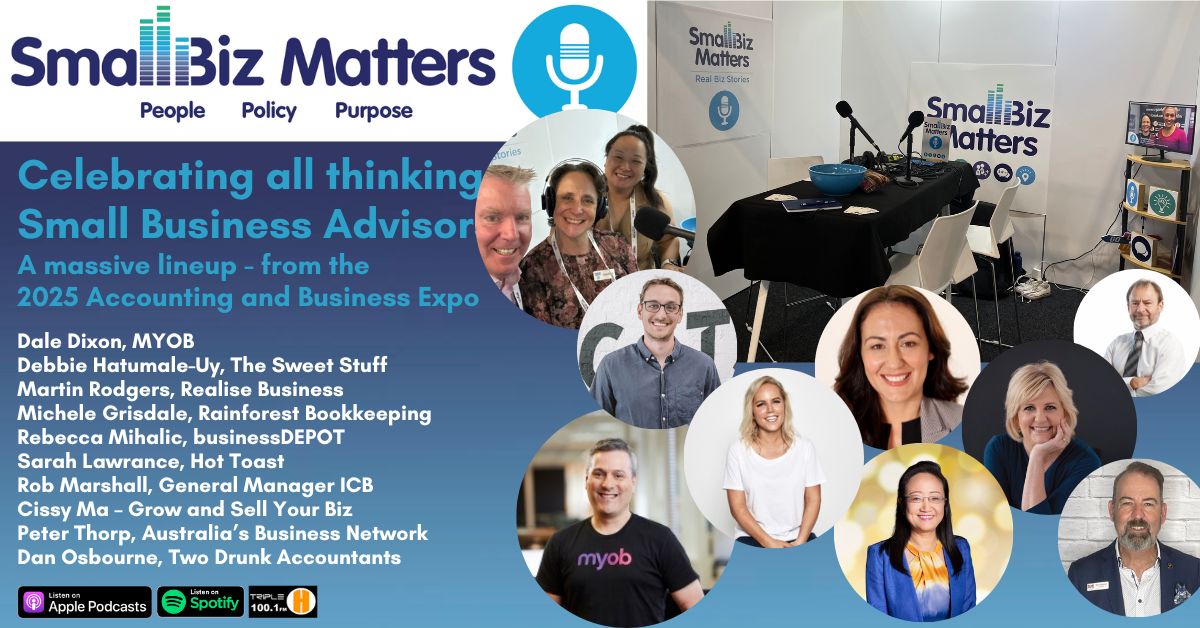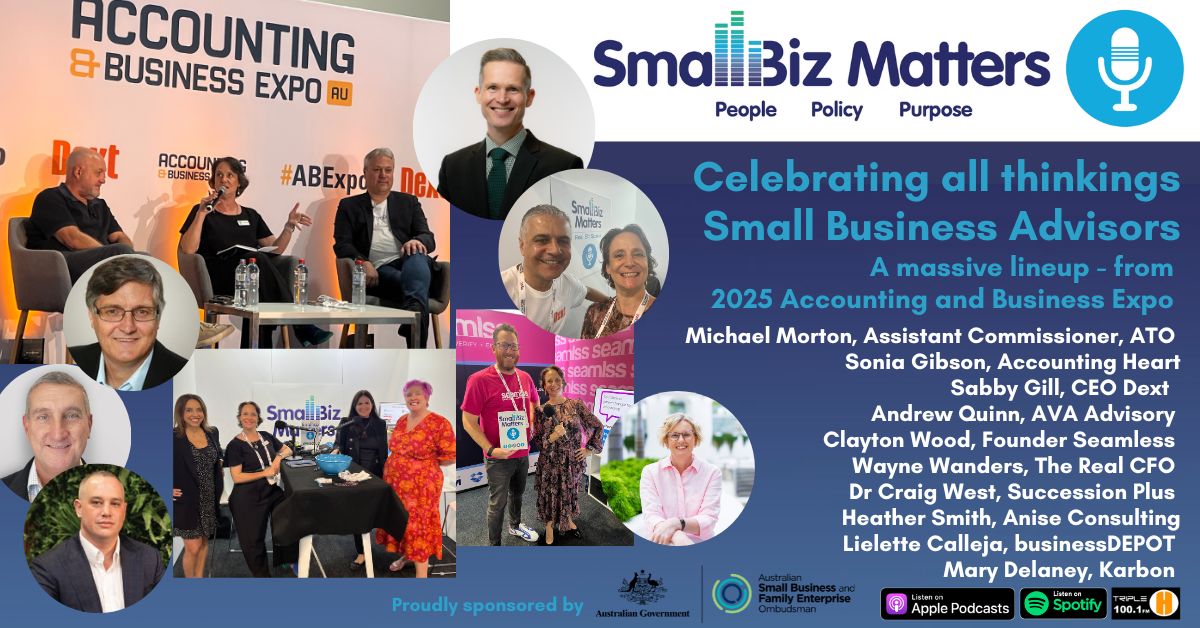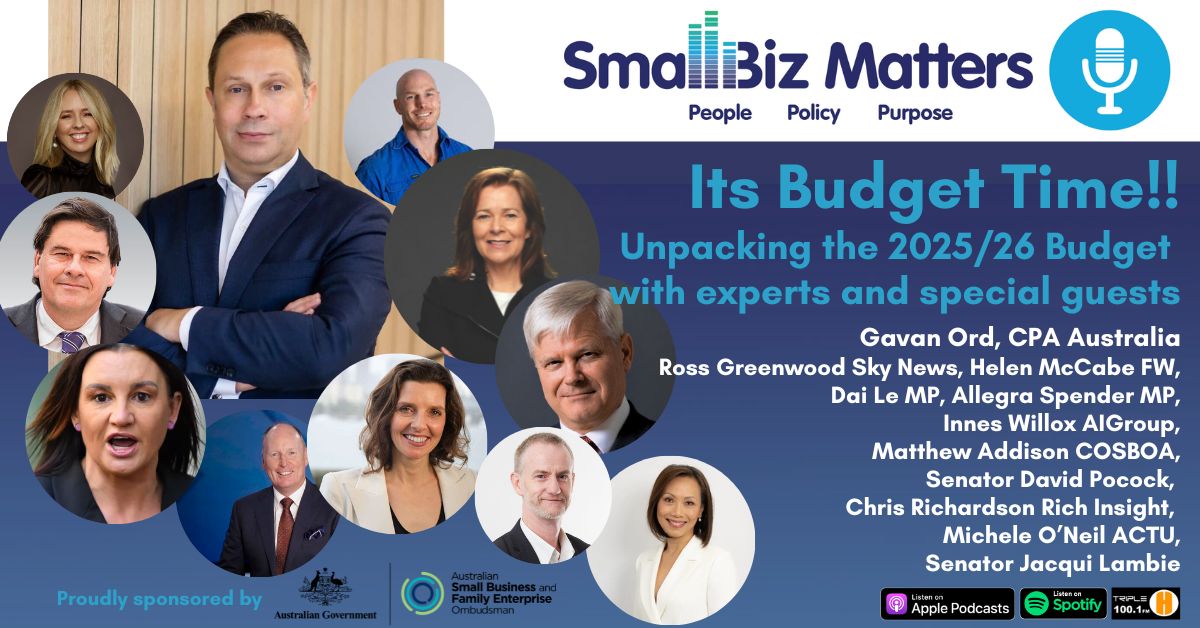Changes to 457 Visas & the effect on Small Business - 30/5/2017
| Tuesday May 30Small Biz Matters – a half hour program each week where you can work ON your business rather than IN it.
with Alexi Boyd from Boyd Office Management Services
Date: 30 May 2017
Slight variations and changes to Government policy can have big consequences to small business. Recently in the last few weeks there has been some major overhauls to the 457 visa system in Australia and if you’re a small business which relies on overseas workers to fill the void of the lack of qualified, experienced personnel then these changes will have big consequences to your business and the way you process these applicants into the future. We have an expert on the show today to help you navigate this minefield ….
Welcome to the show Shelley.
Firstly, as a local small business tell us a little about your small business journey and why you are passionate about helping small business owners to solve this tricky problem?
Having worked in the immigration space for the past 10 years I decided to move out of the corporate environment and use my knowledge to assist companies and individuals with their migration needs. I have built my reputation around providing a personalised and tailored service and through this dedication the majority of my work comes through word of mouth.
I am passionate about making the process as seamless as possible for people looking to migrate, the prospect can be a daunting one so at Simply Visas we try to take away the stress so clients can enjoy their stay in our great country.
Topics we’ll be covering:
- Why do, or should businesses consider overseas workers and really how hard is it to navigate your way around the processes in place to engage with a workers on a visa?
Generally businesses will consider employing a skilled overseas worker if they are experiencing a genuine difficulty in sourcing a suitable Australian worker to fill a position. The process itself really depends on the business, how long they’ve been operating, their Australian workforce, their commitment to training, their industry, the skill set they’re looking for and whether they’ve actively sought out an Australian... so as you can see there are a number of variables. The Department of Immigration and Border Protection places a strong emphasis on training of Australians and the reason for this is because they want to see that the business has an interest in up-skilling Australians, in turn reducing their reliance on overseas workers as a whole.
Simply Visas basically has an initial conversation with a business to go through these factors and gauges the chance of a successful application. In broad terms, the process itself is made up of 3 stages. The first stage is an application for standard business sponsorship - where the business applies for approval to sponsor overseas workers, the length of this agreement is 18 months for a start up and 5 years for an established business. The second stage is a 457 business nomination - where a business nominates an overseas worker to fill a position within their business - the Department will assess whether or not the position is genuine, whether the company has the capacity to support such a role, the scope and scale of the business, the salary on offer, the market and the job description in comparison to the job classification. The final stage is the overseas worker’s 457 Visa, this is where the Department assesses the workers skill set in line with the nominated occupation to ensure they have the relevant qualifications and experience to work in the nominated position.
- In your experience when do businesses typically engage with an immigration lawyer - or better still, when in your opinion is the BEST time to engage with legal support of this nature?
Businesses generally engage a professional to assist when they have not gone through the process before and if they don’t have an employee or division dedicated to global mobility. The best time to engage a professional is before things turn pear shaped, it is always best to gain advice in the first instance rather than attempting something you are unfamiliar with. When it comes to applying to the Department it is always best to ensure a successful outcome for the business and the overseas worker, track records are important and compliance is a major issue, being non-compliant with sponsorship obligations can result in sanctions or fines so it’s always best to be cautious and aim for the best outcome possible. A migration agency like Simply Visas can advise on the chances of success and even assist to identify areas that you may not have considered throughout the migration process.
- What have been the recent changes from a small business perspective and how in your opinion is this going to change the playing field?
There have been a number of changes announced that are in place already and there are more to come. I think the main thing to point out at this stage is that the 457 visa programme is still active and the visa itself won’t be abolished until March 2018. There have however been significant changes to the validity period of the visa, 216 occupations have been removed from the list of eligible occupations and caveats have been applied to certain occupations.
Firstly, the skilled occupation lists have been updated - there is now a short term list and a medium to long term list. If the nominated occupation appears on the short term list the worker will be granted a 457 visa for 2 years - with the option to renew for a further 2 years. If the nominated occupation appears on the medium to long term list then the 457 visa will be granted for 4 years and these workers will also have a pathway to permanent residency.
Anyone who has lodged a 457 visa and their occupation has been removed will have the opportunity to withdraw their application and seek a refund for the fee paid to the Department.
These changes will have a flow on effect to permanent residency applications however the full extent of these changes have not yet been determined.
Further changes are due to be announced on the 1st of July which include further adjustment to the skilled occupation lists, changes to the training benchmarks, a requirement for police clearances which previously were only required in certain circumstances or for permanent residency applications, tightening of the English language requirements and expanding mandatory skills assessments.
The new TSS visa will come into effect in March 2018, it will have 2 distinct streams - short term of up to 2 years and medium term of up to 4 years.
The fees will go up to $1150 for the short term stream and 2400 for the medium term stream.
A higher standard of English will be required for the medium term stream.
Only occupations on the medium term stream will have a pathway to permanent residency.
Labour Market Testing - where a company has to prove they have advertised and unsuccessfully located an Australian worker - will become mandatory unless international trade obligations apply.
The training requirement for businesses will be revised.
- What do you think the government was trying to achieve with these changes and do you think it will work?
Unfortunately change is the only constant when it comes to immigration and it’s just the nature of the industry. Some say these changes are purely political and a tactic to win votes however as an agent it is my job to simply interpret the new legislation and apply it correctly.
The one thing I will say is that I was quite surprised with the number of trade occupations remaining on the skilled occupation lists. In my opinion there are many occupations which should be going to Australian workers, and where once apprenticeships were an appealing prospect this no longer seems to be the case. I believe this goes back to education and outlining options to our younger generation as well as the benefits of working in a highly lucrative industry.
It’s hard to say what affect these changes will have in the long term and I truly believe we won’t know until 5-10 years down the line when there are even more skills shortages how this will affect Australia as a whole.
To find out more go to their website: http://simplyvisas.com/





